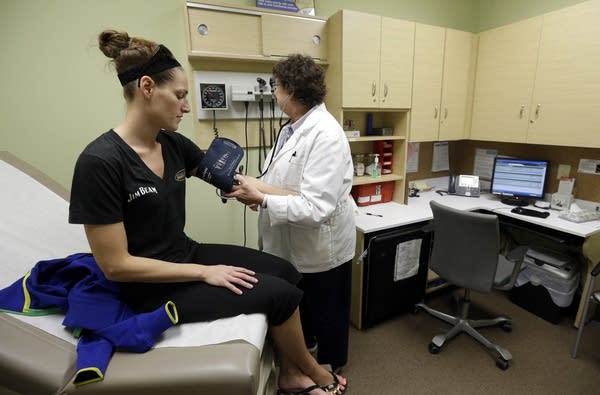Intelligence Squared debate: Retail alliances in health care

Go Deeper.
Create an account or log in to save stories.
Like this?
Thanks for liking this story! We have added it to a list of your favorite stories.
The 2018 Mayo Transform Conference invited John Donvan of the Intelligence Squared series to organize a debate with the traditional two experts on each side of this motion: "Retail alliances — not Washington — will save the U.S. health care system."
Corporate behemoths are announcing mergers that, they say, are sure to shake up health care — from the Amazon, Berkshire Hathaway and JPMorgan Chase venture, to the CVS-Aetna deal, to the Humana-Walgreens partnership, and more.
But while these superpower alliances are making a splash in the headlines, will they actually be able to disrupt, and save, U.S. health care?
Proponents argue that the bargaining power and data competencies of these retailers will squeeze middlemen out of an inefficient supply chain and bring more transparency to health care pricing. Will consumer-focused models and employer-led initiatives lead to better and less expensive outcomes?
Turn Up Your Support
MPR News helps you turn down the noise and build shared understanding. Turn up your support for this public resource and keep trusted journalism accessible to all.
The debate motion: Retail alliances — not Washington — will save the U.S. health care system.
For the motion:
Dr. Rajaie Batniji, co-founder & chief health officer, Collective Health.
"Every CEO in America has woken up and begun to pay attention to their health care costs, recognizing that we can move from a system of health care that is sponsored by employers, to one that is driven by them."
Against the motion:
Dr. Lisa Bielamowicz, co-founder and president of Gist Healthcare.
"Now take Wal-Mart ... they think if they can lower health care costs, they could in fact increase their revenue by three to five percent. They want to get into health care so that you can buy more junk from Wal-Mart."
For the motion:
W. Gregg Slager, senior partner and Global Health Transactions Leader at EY.
"Government has a very, very important role, but it's to support retail. It's to support innovation. It's not to drive the cart, it's to help push it."
Against the motion:
Rosemarie Day, founder and CEO of Day Health Strategies.
"A retailer's bottom line is not society's bottom line. They are not oriented towards doing the common good. They need paying customers. They take a short-term view. They have to — their priority is their shareholders, not what's good for society."
This Intelligence Squared debate was held in September at the 2018 Mayo Transform conference in Rochester, Minnesota.
To listen to the debate, click the audio player above.


